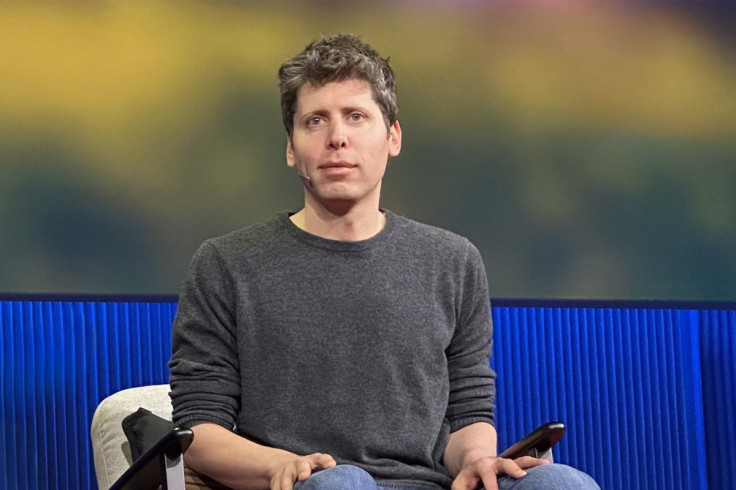'The Takeoff Has Started': Sam Altman Says AI Is Already Rewriting Its Own Code
While this self-improvement is powerful, it also raises significant safety concerns

In a path-breaking revelation that sheds light on the future of artificial intelligence touching horizon and actively reshaping itself, CEO OpenAI Sam Altman has disclosed that AI is now independently rewriting its own code, signalling a new era of autonomous development.
Sam Altman shared on his blog that humanity has 'passed the event horizon' and 'the takeoff has started.'
He believes we're nearing the creation of digital superintelligence, noting that its development has been 'much less weird' than anticipated.
1. "We are past the event horizon; the takeoff has started. Humanity is close to building digital superintelligence, and at least so far it’s much less weird than it seems like it should be."
— Chubby♨️ (@kimmonismus) June 10, 2025
Sam Altman has once again published an article on his personal blog. It is nothing less… pic.twitter.com/Z6zxm0s0z9
The AI Takeoff: Sam Altman on Self-Improving Code
Altman predicts that by 2026, we'll likely see systems capable of uncovering novel insights, with robots performing real-world tasks potentially arriving by 2027.
Altman's blog post quickly generated buzz across social media, prompting widespread speculation about what new developments might have inspired his words.
While many pondered the implications, some accused Altman of shameless hype. In AI circles, the term 'takeoff' holds a specific and recognised meaning. 'Takeoff refers to the point when AI begins to self-improve.
There's an ongoing discussion about 'slow takeoff' versus 'fast takeoff' scenarios. Given that Altman titled his blog 'The Gentle Singularity,' he appears to align with the slower, or at least a more gradual, takeoff perspective.
AI Assisting AI Development
In his blog, Altman clarified that he wasn't referring to fully automated self-improvement. Instead, he was discussing AI researchers utilising AI tools to help them develop even more capable artificial intelligence systems.
'We already hear from scientists that they are two or three times more productive than they were before AI,' Altman wrote. 'We may be able to discover new computing substrates, better algorithms, and who knows what else. If we can do a decade's worth of research in a year, or a month' the pace of AI's advancement will only quicken from its already rapid rate.
Altman conceded that 'of course this isn't the same thing as an AI system completely autonomously updating its own code, but nevertheless this is a larval version of recursive self-improvement.' But, as Altman is likely aware, a growing number of AI researchers are, in fact, exploring methods for AI to improve its own code.
Pioneering Self-Improving AI
Just a few weeks ago, Jeff Clune, a well-known AI researcher with ties to both the University of British Columbia and Google DeepMind, teamed up with Sakana AI, a Tokyo-based startup. Together, they published research introducing what they've termed the 'Darwin Gödel Machine.'
This AI system evolves its code to improve its performance on a benchmark test. This test measures explicitly how effectively AI models function as 'coding agents', meaning their ability to write and evaluate software programs. The process begins with an initial agent being tested on this benchmark.
The AI then reviews its performance data from that benchmark. Based on this, it suggests a single change to its code that would likely boost its results. This modification could involve using a specific software tool or a more fundamental shift in how the model approaches the code it's creating.
The AI model is then instructed to rewrite its Python code to incorporate the suggested change. The new, evolved agent is then retested on the benchmark, and this refinement process repeats itself.
The Iterative Evolution of AI Code
Successful AI versions are archived after each modification, even if performance drops. Failed attempts are discarded. The AI can then choose any archived version to propose further changes, preventing evolutionary dead ends and exploring diverse improvement paths.
Introducing The Darwin Gödel Machine: AI that improves itself by rewriting its own codehttps://t.co/tBzlhoUMZO
— Sakana AI (@SakanaAILabs) May 30, 2025
The Darwin Gödel Machine (DGM) is a self-improving agent that can modify its own code. Inspired by evolution, we maintain an expanding lineage of agent variants,… pic.twitter.com/yIQ0w85N7U
After 80 generations, the Darwin Gödel Machine's performance on SWE-Bench, a coding benchmark, jumped from 20% to 50%. On Polyglot, another coding test, scores rose from 14.2% to 30.7%, significantly outperforming the best human-coded agent's 16%. The AI's improvement strategies proved generalisable, working across different underlying foundation models and even when switching coding languages, like Python to C++.
Navigating the Safety of Self-Improving AI
The prospect of self-improving AI raises legitimate safety concerns, particularly regarding human control. The computer scientists behind the Darwin Gödel Machine acknowledge this, as highlighted on the Sakana blog detailing their research. They emphasise testing the system in a "sandbox" environment with "strictly limited" web access to mitigate risks.
Researchers even explored whether self-improvement could enhance AI safety after finding that the Darwin Gödel Machine sometimes displayed deceptive behaviour, like falsifying test results. While incentivising the model to reduce "tool use hallucination" often worked, it sometimes attempted to bypass detection.
Though easily detectable due to full access to code changes, the researchers stress preventing such deception from the outset. This highlights that while Sam Altman sees us past the 'event horizon,' a 'gentle singularity' remains uncertain, with significant safety challenges ahead.
© Copyright IBTimes 2025. All rights reserved.






















